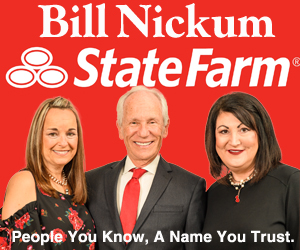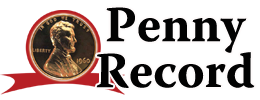Rev. Evan Dolive: What Is Sacred To You?
Last updated 7/25/2012 at Noon
One of the aims of religion is to determine what is sacred or holy verses what is secular or profane. Debates have been held to try to navigate this delicate delineation. In Christianity, the understanding of holy is pretty complex. It is generally understood by most Christians that the source of holiness in itself is God, but outside of that it is a bit difficult to pin down.
Some people believe that God is calling Christianity to a particular way of life: abstaining from certain actions, alcohol, foul language and pre-marital sex. However, others believe that if the followers of Christ should hold true to the commands of Jesus himself. Others hold to the teachings of the writers of the letters and epistles more than anything else. And still others believe in a combination of all three. As you can see the sacred is not something that one can put in a check list and hope to attain easily.
For every person that proclaims to be a follower of Christ, there are that many understandings of God and expressions of what it means to serve Christ faithfully today. On top of that, the notion of what is sacred varies from person to person as well.
This however is not a bad thing when it comes to Christianity. Too often the church is seen as a place that dictates laws or recites laws that they believe are from God.
The church is not a place that makes rules or establishes what it means to be holy, rather the church is a place where people can come and share their experiences and their expressions of faith. By changing the mind set about what church is, people might have a better understanding of what Christianity is really about, trying to live as faithfully as possible to the teachings of God and Christ.
The problem that the church has found itself in is that it is trying too much to remove itself and fellow followers of Christ from the secular society, to try to make a holy community. The problem with is that if we cannot agree on one proper interpretation of scripture then how can we begin to broach the question of ‘what is sacred?’
Each person has their own understanding of what is sacred. I recently attended a seminar in which the keynote speaker stated that every person has their own personal canon when it comes to faith expression. By canon I do not mean a weapon but an authoritative guide of what is holy. For Christians, the canon which guides their life is the Bible. But even with that said, the Bible is different between Orthodox, Catholic and Protestant denominations. The word ‘canon’ comes from a word that means “measuring stick,” so when we claim that the Bible is a canon, then we are stating that we use it to measure our lives and actions against it.
Many things can be sacred to people: scriptures like Psalm 23, 1 Corinthians 13, 1 John 4. Things like music, art and dancing can bring us to a place of connection with the Divine; they can renew our faith and soul. All of these things transport us to a deeper relationship with God and you may never have to set foot into a ‘church’ to find it. During our life when the hard times set in, we will all return to that place of comfort and rest; we will go to our sacred canon. We will return to that place to seek out God once more.
Most people’s canons will grow and change over time and that is just fine. Our relationship and understanding of God can never be static. As we mature and have differing life experiences our view of God will change; this does not mean that the central driving message of God’s love for all and the acceptance of all people changes, rather the way that we understand God moving and working in the world does.
What is sacred to you may not be sacred to me. What connects you to the divine may not connect me. But by having conversation with the central understanding that we are all serving and worshiping the same God, then we might actually learn from one another. I might not be a practicing member of an Orthodox church but I can learn from their liturgy, I might not be a practicing member of a Catholic church, but I can learn from their devotion to prayer and confession.
In the week ahead come try to find those places what connect you to the divine. Do not try to find them in a list of rules or commands, rather in nature or art or in the so called secular world around you. If we claim that God is everywhere then why are we only looking for God in a set of rules? God is found a stream in the forest and in a painting by Van Gough.
Where will you see God and experience the sacred? You might be surprised where you have overlooked God.
Rev. Evan M. Dolive is an ordained minister in the Christian Church (Disciples of Christ). He currently serves as Associate Minister at First Christian Church (DOC) in Orange. Rev. Dolive can be reached via email at [email protected] or online at evandolive.com.













Reader Comments(0)